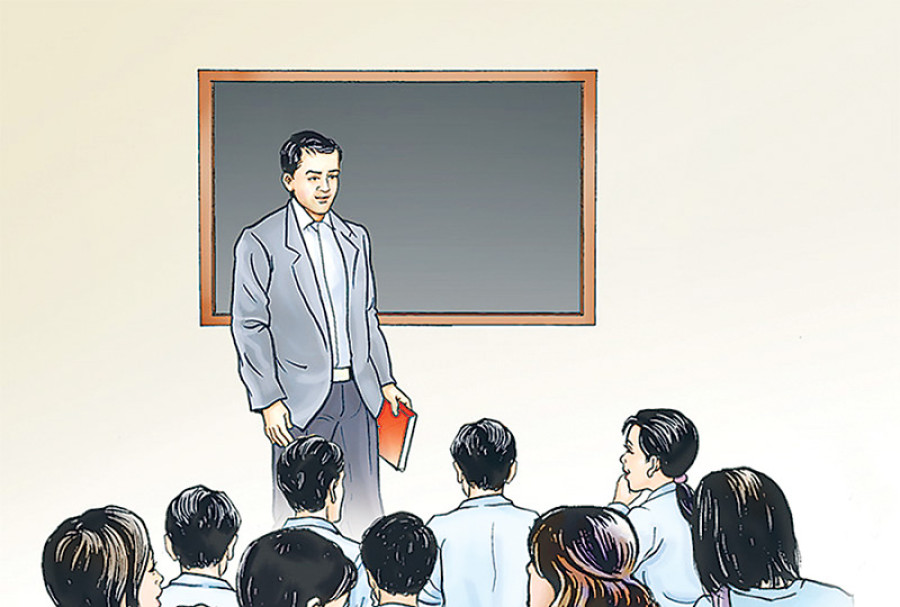National
Rural municipalities turn to study groups after virtual classes found ineffective
Several local governments are asking schools to teach students in small groups and call kids to school on a rotation basis.
Binod Ghimire
With the prospects of resumption of schools slim, and the effectiveness of virtual education questioned, various rural municipalities have started teaching students by forming groups at the community level.
Local governments started teaching children by maintaining social distance a week after the Ministry of Education issued a directive putting them in charge of local school operations.
Nagendra Bahadur Malla, chairperson of Dungeshor Rural Municipality, Dailekh, said all 36 schools in the rural municipalities have formed study groups for children. “Some schools have started calling one-fifth of their students to the school each day on a rotation basis,” said Malla. “Others are teaching children by forming study groups. Teachers interact with students and give them homework,” he told the Post. Students then show their homework to the teacher when it is their turn to go to school.
He said this teaching-learning methodology will continue for a month until Dashain when its effectiveness will be evaluated. “We will decide whether to continue with what we have been doing or switch to another methodology,” he said.
The ministry on September 10 came up with a directive asking local governments to categorise students into five groups based on their access to virtual learning platforms and provide them learning opportunities accordingly. As per the directive, the first category of students includes those who don’t have access to any alternative learning platforms, the second consists of those who have access to a radio. The third category of students includes those who have access to tv. Those in the fourth group have access to a computer, but not the internet. Children under the fifth category have access to the internet and other means of communication.
Representatives of local governments say they shifted to in-person teaching after assessing that the virtual learning platforms were either out of the reach of students or were ineffective. Gadhawa Rural Municipality, Dang, has asked schools to start classes in small groups after running classes over the local FM radio station for three months.
Sahajram Ahir, chairperson of the rural municipality, said all the schools in the area will start teaching students in small groups from Sunday. “We decided to adopt in-person study after realising that this was the only effective option we have,” he told the Post. “We hope the interaction between the teachers and students will motivate students to get back to studying.”
Formal classes in schools have been halted for the last six months amid an increase in coronavirus cases. The new academic session normally starts in mid-April. However, all schools and colleges have remained shut since March 18, around a week before the country went into a full lockdown to contain the spread of the pandemic.
Ahir said they decided to start running face-to-face classes after the education ministry issued the directive authorising local governments to mobilise teachers or volunteers to conduct classes in small groups for students who don’t have access to virtual learning.
He said that although a significant number of students have access to FM radio, it was not an effective means of distance learning as students don’t get to ask teachers questions.
Estimates suggest that only around 40 percent of school children in Nepal have access to virtual learning platforms. However, a recent report by UNICEF shows only three out of 10 students have access to any form of virtual education.
Bansalal Tamang, general secretary of National Association of the Municipalities in Nepal, said dozens of rural municipalities that don’t have active Covid-19 cases or have few cases have already started or are in the process of doing so very soon.
“Five months of the current academic session are already gone. We hardly have five-six months to complete the curricula now,” he told the Post.
During a virtual interaction with the journalists on Tuesday, Minister for Education Giriraj Mani Pokharel said the present academic year will not be extended, and end in April.




 15.12°C Kathmandu
15.12°C Kathmandu















